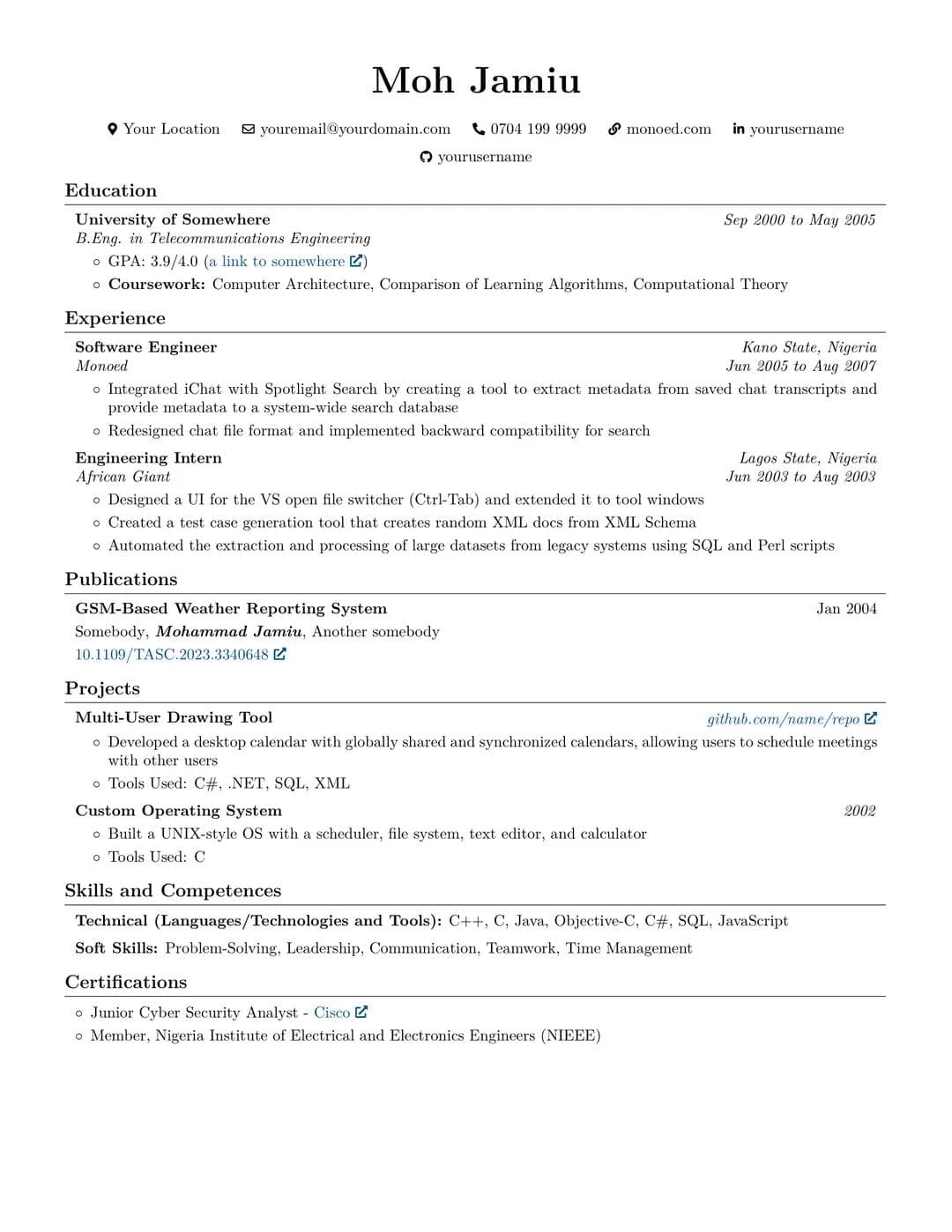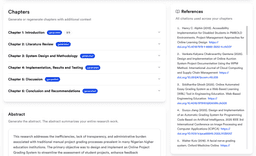CV vs Resume: What’s the Difference and Which One Should You Use in Nigeria? (2025 Guide)
Learn the difference between a CV and a resume in Nigeria. Find out when each is used, what Nigerian recruiters expect, and how to format yours to land interviews.


Are you confused about whether to submit a CV or a resume when applying for jobs in Nigeria? You’re not alone. Many job seekers wonder if there’s any real difference between the two, or if it even matters.
In Nigeria, employers almost always say “Send your CV.” But technically, a CV and a resume are not the same thing. Understanding the difference can help you avoid mistakes, especially if you’re applying for international roles or academic positions.
Let’s break it down in simple terms.
CV/Resume Maker
Create and download a professional, ATS-friendly CV or resume in minutes.
Fill the Form
Provide your details in an easy-to-use, clean interface.
Get AI Suggestions
Refine your inputs for crucial sections like achievements and objectives.
Download Your CV/Resume
Instantly receive a professional, ATS-friendly PDF document.
What’s a CV?
A CV (Curriculum Vitae) literally means “course of life.” It’s a detailed document that provides a complete record of your academic and professional background.
- Length: Usually 2–3 pages for professionals, but it can be much longer (especially in academia).
- Content: Full career history, education, research, publications, awards, certifications, affiliations, and even presentations.
- Purpose: Mostly used for academic, research, medical, or international roles where employers want a complete picture of your qualifications.
Think of a CV as the “long version” of your professional life.
What’s a Resume?
A resume is a short, targeted summary of your qualifications. The word comes from French, meaning “summary.”
- Length: Usually 1 page, maximum 2 pages if you have a lot of experience.
- Content: Focuses only on the most relevant skills, work experience, and achievements for the specific job you’re applying for.
- Purpose: Used in corporate, business, and private sector jobs, where recruiters want a quick overview.
Think of a resume as the “highlight reel” of your career.
CV vs Resume: Key Differences
| Feature | CV | Resume |
|---|---|---|
| Length | No strict limit (often 2–3+ pages) | 1–2 pages max |
| Content | Complete career history, detailed achievements, publications, etc. | Tailored summary of relevant skills & experience |
| Use Cases | Academia, research, grants, medical, international applications | Corporate, private sector, business jobs |
| Focus | Comprehensive detail | Concise relevance |
Local Practice in Nigeria
Here’s the reality: in Nigeria, “CV” and “resume” are often used interchangeably.
When an employer says “send your CV,” they’re almost always expecting a resume-style document that is:
- Concise (1–2 pages)
- Tailored to the job description
- Professional and easy to read
- PDF format (not Word)
Unless you’re applying for a lecturer role, PhD, research grant, or an international academic position, you don’t need a long, detailed CV.
👉 For 95% of Nigerian job applications, your “CV” should actually look like a resume.
Which Should You Use in Nigeria?
- Corporate / Business Job (Nigeria): Send a resume-style CV (1–2 pages).
- Academic / Research Role (Nigeria or Abroad): Send a full CV with detailed academic history.
- International Job (Corporate): Still send a resume, unless the employer specifically asks for a CV.
When in doubt, keep it concise and tailored.
Examples
- Example 1 (Nigerian Bank Job): Recruiter asks for “CV.” → Submit a 2-page resume-style document with skills, achievements, and work history tailored to banking.
- Example 2 (Lecturing Position at UNILAG): Recruiter asks for “CV.” → Submit a full academic CV with teaching history, publications, and research projects.
- Example 3 (International NGO): Job description specifies “resume.” → Submit a 1-page resume focused on relevant NGO/charity experience.
Wrap Up
In Nigeria, people often use the terms CV and resume as if they mean the same thing, but technically, they don’t.
- A CV is long, detailed, and academic.
- A resume is short, targeted, and job-focused.
- Nigerian employers almost always expect the resume-style CV (1–2 pages).
So, unless you’re in academia or applying internationally, keep it concise, professional, and tailored to the role.
👉 Want help creating a recruiter-ready CV in minutes? Check out our guide: How to Create a CV on Your Phone in Nigeria (Free, 2025).
FAQs
Q1. Do Nigerian employers prefer a CV or a resume?
Most Nigerian employers say “CV” but expect a resume-style 1–2 page document.
Q2. Can I send a 5-page CV to apply for a job in Nigeria?
Not unless it’s an academic or research role. For corporate jobs, keep it 1–2 pages.
Q3. What’s the best file format for my CV in Nigeria?
Always send PDF. It’s clean, professional, and ATS-friendly.
Q4. How do I know if an employer wants a CV or a resume?
If it’s an academic or international role, they likely mean a CV. For most Nigerian jobs, assume they want a resume-style CV.


